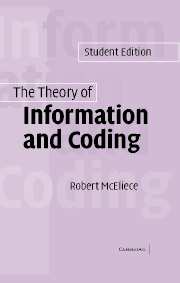Editor's statement
Published online by Cambridge University Press: 05 June 2012
Summary
A large body of mathematics consists of facts that can be presented and described much like any other natural phenomenon. These facts, at times explicitly brought out as theorems, at other times concealed within a proof, make up most of the applications of mathematics, and are the most likely to survive changes of style and of interest.
This ENCYCLOPEDIA will attempt to present the factual body of all mathematics. Clarity of exposition, accessibility to the non-specialist, and a thorough bibliography are required of each author. Volumes will appear in no particular order, but will be organized into sections, each one comprising a recognizable branch of present-day mathematics. Numbers of volumes and sections will be reconsidered as times and needs change.
It is hoped that this enterprise will make mathematics more widely used where it is needed, and more accessible in fields in which it can be applied but where it has not yet penetrated because of insufficient information.
Information theory is a success story in contemporary mathematics. Born out of very real engineering problems, it has left its imprint on such far-flung endeavors as the approximation of functions and the central limit theorem of probability. It is an idea whose time has come.
Most mathematicians cannot afford to ignore the basic results in this field. Yet, because of the enormous outpouring of research, it is difficult for anyone who is not a specialist to single out the basic results and the relevant material. Robert McEliece has succeeded in giving a presentation that achieves this objective, perhaps the first of its kind.
Information
- Type
- Chapter
- Information
- The Theory of Information and CodingStudent Edition, pp. viiiPublisher: Cambridge University PressPrint publication year: 2004
